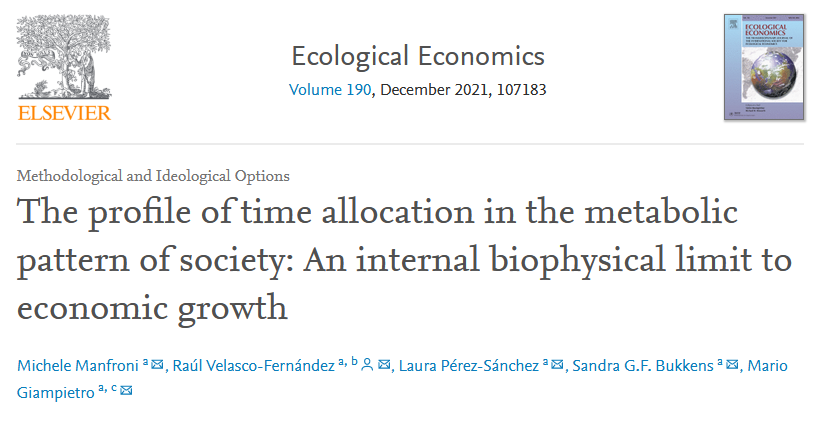Manfroni, M., Velasco-Fernández, R., Pérez-Sánchez, L., Bukkens, S. G., & Giampietro, M., 2021. «The profile of time allocation in the metabolic pattern of society: An internal biophysical limit to economic growth». Ecological Economics.
Abstract
We show that shortage of human activity may represent an internal constraint to economic growth as relevant as external resource and sink constraints. Human time is required, both inside and outside the market, to produce and consume the goods and services needed to sustain societal metabolism. The time allocation profile is therefore an emergent property of the societal metabolic pattern. When most time is invested in services and final consumption rather than supplying the inputs required by the metabolic process, further growth is constrained. This problem may be temporarily overcome by three strategies: (i) increasing capital investment to boost labor productivity in the productive sectors; (ii) externalizing the requirement of working hours through imports of goods and services; (iii) importing economically active population through immigration. Each strategy is illustrated with an empirical example: (i) a comparison of the evolution of the profile of time and capital allocation between China and the EU; (ii) an assessment of the labor hours embodied in EU imports; (iii) an analysis of demographic changes in response to immigration in Spain. While these strategies can temporarily overcome constraints to economic growth at the national level, they do not represent a long-term solution at the global level.

